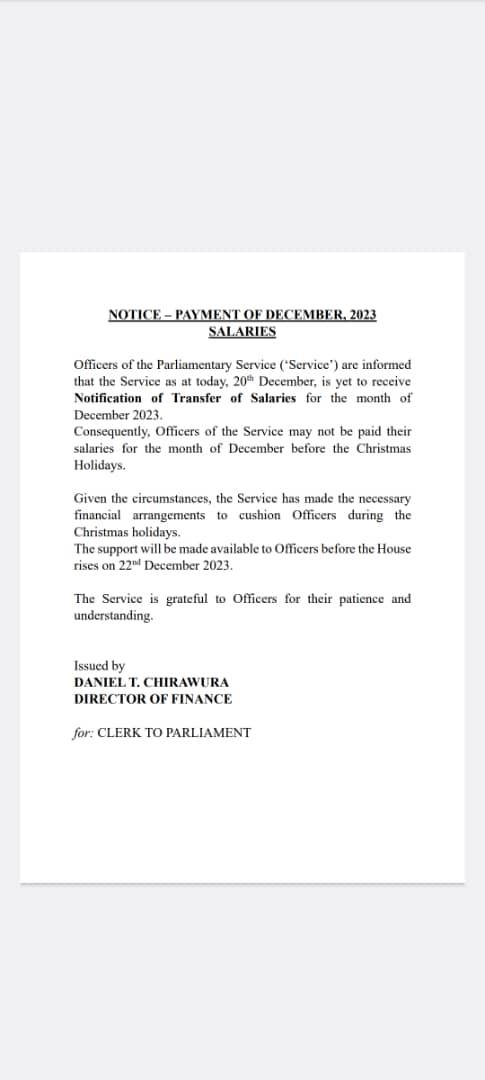
Honourable Minister for Labour, Jobs and Employment, Judges, Education Sector Workers, Fellow Debaters, and Esteemed Readers,
I write to support the motion that teachers’ services are crucial to society and that they deserve better compensation. Hon. Minister. Education serves as the foundation of civilization, it is the essential framework upon which all other professions are developed. Without teachers, what would our workforce consist of?
Who would guide the training of doctors who save lives, engineers who Build cities, or politicians who lead nations? Teachers facilitate the transfer of knowledge across generations. Unfortunately, in many places, they are under-compensated, undervalued, and overlooked. How can we expect them to commit to developing young minds when society fails to acknowledge their significance?
Some may argue that professions like medicine, law enforcement, and engineering offer more immediate, tangible benefits to society. Indeed, doctors save lives, police officers maintain safety, and engineers create the necessary infrastructure. But let me pose this question: Who is responsible for their training? No doctor, engineer, or officer would be where they are without first learning from a teacher. Without educators, no other professions could exist.
Honourable, the are you aware that the 2024 report from UNESCO declares, “Teachers play a vital role in shaping the future, unlocking every learner’s potential” (unesco.org). This underscores the fact that teachers are the architects of society. Oh yes! They shape the minds that construct nations. If their influence is that profound, should they not be justly rewarded?
Furthermore, Honourable Minister, the notion that a country can thrive without formal education is misguided. Education significantly affects public health and social stability. The World Bank has reported that “higher literacy rates lead to better health outcomes” (nec.edu). Educated individuals tend to seek medical assistance, adhere to treatment protocols, and live healthier lifestyles, alleviating pressure on healthcare systems. A society with educated citizens also experiences fewer preventable diseases and longer life expectancy. Can we genuinely assert that teachers are any less vital than doctors when education is essential for better public health?
Additionally, education significantly impacts national security. According to the UN Office on Drugs and Crime (UNODC), nations with higher education levels tend to have lower crime rates. The reason is that education provides individuals with improved job prospects, reducing the chance of resorting to crime for survival. By neglecting to invest in teachers, we are inadvertently contributing to a future fraught with crime and disorder. Would it not be wiser to prevent crime through education rather than relying on an overwhelmed police force?
Despite the critical nature of their work, teachers continue to be undervalued and underpaid. Some may argue they earn enough as it is, but the facts tell a different story. The International Labour Organization (ILO) indicates that “teachers in many countries earn 15-30% less than professionals with comparable qualifications” (oecd.org). This salary gap deters talented individuals from pursuing teaching careers. This may result in teacher shortages, overcrowded classrooms, and declining education quality. If we cannot attract and retain capable educators, what kind of future workforce can we expect?
While some may argue that Teaching is a calling and that financial remuneration shouldn’t matter, I ask: does passion pay for necessities? No other profession is expected to function solely on dedication. Doctors, legal professionals, and engineers are all compensated according to the significance of their roles. Why should teachers be any different? The OECD has determined that nations with higher teacher salaries also see improved student performance and long-term economic advantages (oecd.org). Investing in educators is not merely an individual endeavour; it is an investment in our national future.
Hon. Minister, let us use Finland, for a case study, a country that consistently ranks highly in education. Their secret? Competitive salaries for teachers. Finland understands that to achieve quality education, one must attract the best talent to the profession. Teachers there are not only well-compensated but also significantly respected. This approach has led to economic stability, innovation-driven progress, and a well-informed workforce (gpseducation.oecd.org). If we wish to achieve similar success, we must emulate their efforts.
Some may contend that raising teachers’ salaries would place an excessive financial strain on the government. However, consider the reality: the cost of underpaying teachers far exceeds the expense of increasing their salaries. Low teacher wages lead to a deficient education system, creating an unskilled workforce, high unemployment rates, and sluggish economic growth. A nation that neglects to invest in its educators will eventually face the repercussions of social and economic instability.
Moreover, if we can allocate funds for infrastructure, military defence, and politicians’ salaries, why not invest in education? Lawmakers, who make decisions iImpacting millions, are well-compensated. Yet, the individuals who provide them with knowledge-the teachers-struggle financially. Does that not seem unfair? If we genuinely prioritize national progress, we must accept that education is the most potent tool for transformation. For education to thrive, educators must be treated with the dignity and respect they deserve. This starts with fair wages.
Ladies and gentlemen, the evidence is clear. Teachers are the foundation of every profession, the economic backbone of society, and the guardians of knowledge. Without them, our society would falter. They cultivate minds, inspire creativity, and forge the future. Yet, we expect them to accomplish all this while grappling with financial instability. How can we profess to value education while treating educators as lesser professionals?
A well-compensated teacher leads to a well-educated society. Conversely, a poorly paid teacher results in a struggling nation. The choice is ours: do we continue to ignore those who hold the key to our future, or do we finally honour them with the respect and compensation they rightly deserve?
I strongly support the notion that teachers deliver the most essential service in society and that they deserve better pay.
Thank you!
Wisdom Koudjo Klu,
Educationist/Columnist,
Greater Accra Region.
#Join The Debate
# Fun & Education Purpose Only
Editor’s note: Views expressed in this article do not represent that of The Chronicle
The post Debate Motion: “Teachers’ Services Are Essential in Society and They Deserve Higher Salaries” appeared first on The Ghanaian Chronicle.
Read Full Story




















Facebook
Twitter
Pinterest
Instagram
Google+
YouTube
LinkedIn
RSS